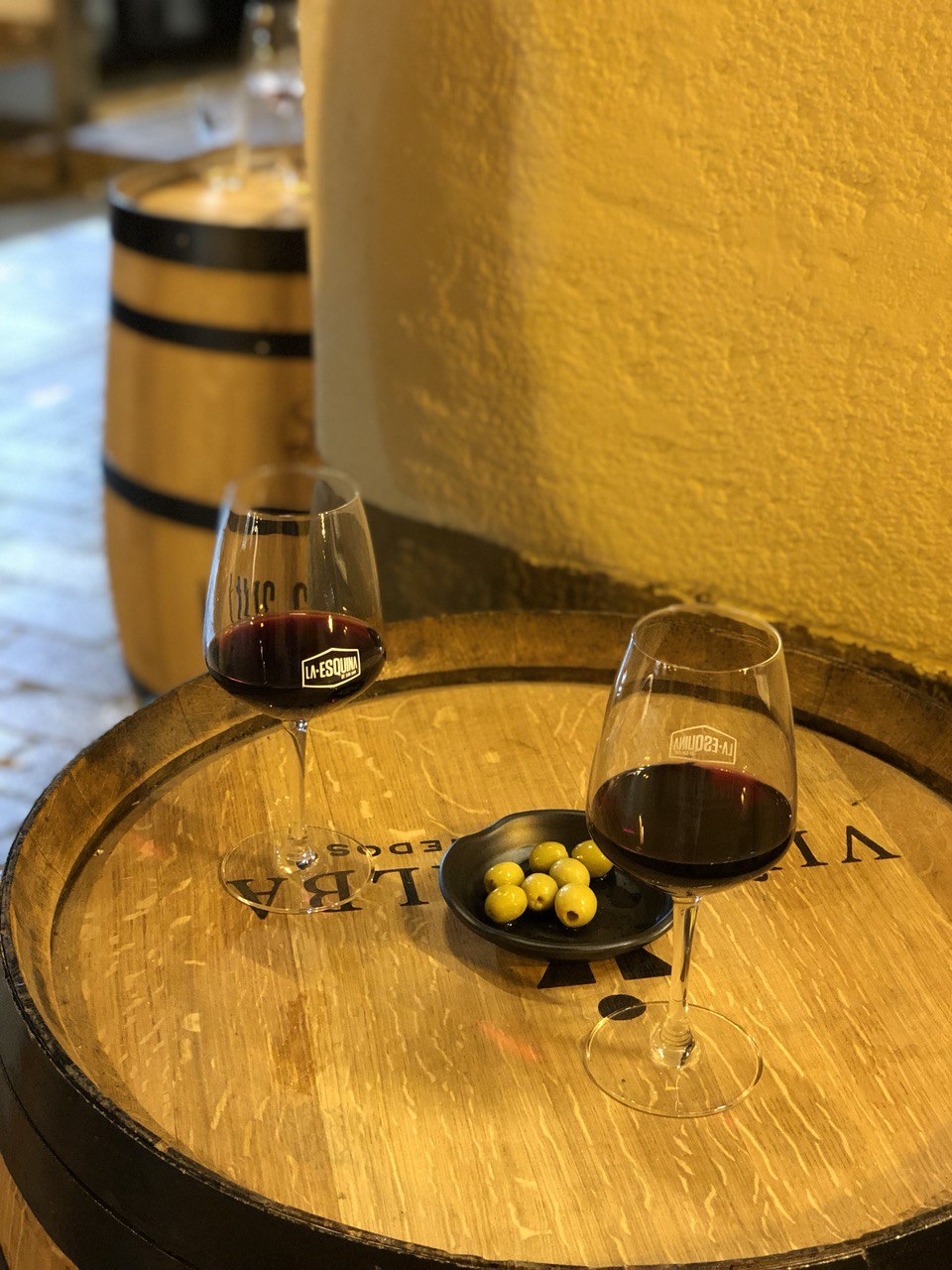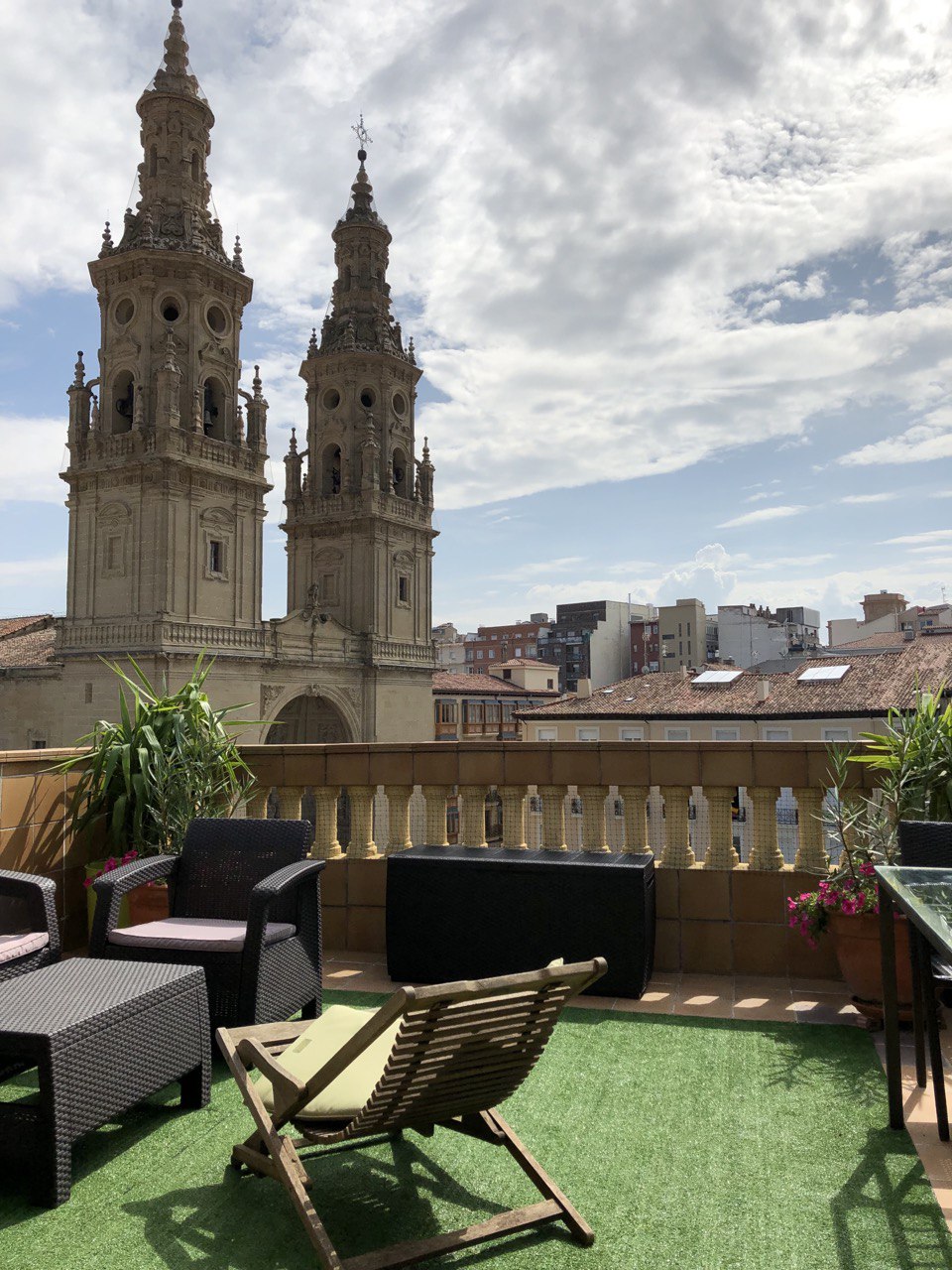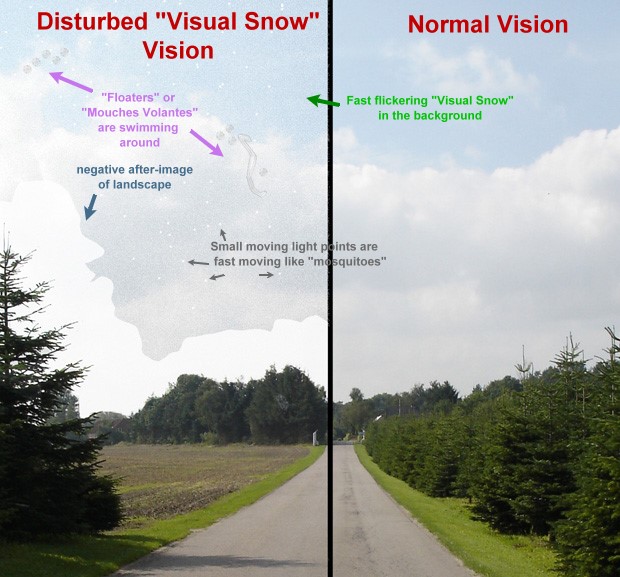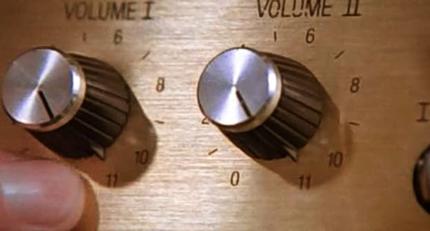Tuesday Triage #15
- TUESDAY TRIAGE #15 by Vadim Drobinin
- On wine and conferences
- Things I enjoyed reading
- 1. Step-by-step: Programming incrementally by Niklas Gray
- 2. Unexpected, Useless, and Urgent by @whatrocks
- 3. Wrong Again: 50 Years of Failed Eco-pocalyptic Predictions by Myron Ebell and Steven J. Milloy
- 4. My Dad, the Pornographer by Chris Offutt
- 5. The Science of Lactic Acid Fermentation: Pickles, Kraut, Kimchi, and More by Tim Chin
- 6. Early Adopters: Be Picky About Who You Serve by @johnkoht
- 7. Poet of loneliness by Gary Saul Morson
- 8. The Enduring Enigma of Costco's $1.50 Hot Dog and Soda Combo by Jake Rossen
- 9. Talking, Typing, Thinking: Software Is Not a Desk Job by
- 10. How Apple Is Organized for Innovation by
- Things I didn't know last Tuesday
- 1. persimmons are treated to remove tannins
- 2. friluftsliv
- 3. Lloyd's Coffee House
- 4. Daedal
- 5. Visual Snow
- 6. Slow lorises are one of the world’s only venomous mammals
- 7. 15 London street
- 8. Bogs
- 9. Blue roll
- 10. Up to eleven
- Book of the week
- Thank you and see you in a week!
TUESDAY TRIAGE #15
by Vadim Drobinin ¶
Your weekly crème de la crème of the Internet is here!
27.10.2020 (read in browser)
On wine and conferences ¶
I got some really exciting news this week, which is the invitation to give a talk at NSSpain next month.
This is quite thrilling for multiple reasons:
-
First things first, I do enjoy sharing knowledge, and last year applied to 30+ events with 140+ proposals which resulted in 6 different talks all over the world.
-
I will be talking about a very controversial topic (which I covered partly in the past) and attempt to answer whether mobile engineers should care about algorithms efficiency or not.
-
I've been to NSSpain last year and the event was lit – the great team behind it, the line-up, the attendees.
-
This is the first time folks will be able to see this talk online, as its previous version was presented back then at AltConf and never got recorded.
Do buy your ticket if you want to see it live though.
However, conferences are not only about learning whatever is promised in the agenda. They are also about traveling, and traveling is mostly about living and breathing the culture of the place you visit.
NSSpain happened to take place in Logroño, the capital of the Rioja region in Spain, mere days before the annual wine festival, and the wine theme was pretty much framing this week for me.

If you imagine a wine festival as an event for connoisseurs sampling rare vintages, complementing on their terroirs, and consuming delicate pintxos, you might be making the same mistake as I did.
While it's about fun and lively conversation, it is also about mixing wine with Coke (which apparently is quite common in the area; the drink is called Kalimotxo).
I will hold off on judgement though as I'd definitely come back.

Things I enjoyed reading ¶
1. Step-by-step: Programming incrementally by Niklas Gray ¶
This being the most important skill for any developer is one of the hills I am willing to die on:
One thing that has really benefited my productivity (and also my general sanity), has been learning how to take a big task and break it down into smaller, more manageable steps. Big tasks can be frightening and overwhelming, but if I just keep working on the list of smaller tasks, then somehow, as if by magic, the big task gets completed.
Being able to divide-and-conquere for any given task is also a nice way to make sure that every chunk of work has a dedicated meaning.
2. Unexpected, Useless, and Urgent by @whatrocks ¶
A big part of this newsletter is powered by RSS. Here is a good summary of why it's RSS, not something more modern:
With my sweet-sweet RSS, there's no anxiety. There's no guilt. In our time-tracking Screen Time home screen widget era, there's almost a baccanalian decadance to sifting through an RSS inbox, like watching honey drip from one of those wooden combs in a cereal commercial. Or -- back when we were allowed -- going to the library and reading the newspaper from those weird wooden dowels.
The RSS is reminiscent of the well forgotten days where I'd sit with my typewriter and a barely lit cigar, sip scotch and reply to letters.
Maybe I just seen it in some movie though.
3. Wrong Again: 50 Years of Failed Eco-pocalyptic Predictions by Myron Ebell and Steven J. Milloy ¶
A relieving overview of apocalyptic predictions for the past 60 years (as you can guess, all failed):
More than merely spotlighting the failed predictions, this collection shows that the makers of failed apocalyptic predictions often are individuals holding respected positions in government and science.
4. My Dad, the Pornographer by Chris Offutt ¶
An interesting story about the history of American erotic novels:
Many of the early publishers used a “house name,” a pseudonym shared by several writers. It concealed identity, which writers preferred, while allowing the publisher to give the illusion of a single prolific author. This was an early attempt at branding, with proven success in other genres: westerns, romance and mystery.
5. The Science of Lactic Acid Fermentation: Pickles, Kraut, Kimchi, and More by Tim Chin ¶
Pickles are among one of the staples of Russian cuisine, and yet for a long time I did my best to avoid pickled (or fermented, for that matter) tomatoes and garlic. However, I couldn't escape fermentation, and this is a great summary of DOs and DONTs:
The most straightforward method involves submerging a product in a salt brine. Anything below the surface of the brine is deprived of oxygen. A second method is to create a mash by blending or crushing a product (such as a hot pepper mash). In addition to greatly expanding the potential surface area exposed to microbes, making a mash will typically release liquid. When the mash is packed tightly in a fermentation vessel and covered with a weight, the liquid fills any gaps or pockets of air, effectively creating an oxygen-free environment.
6. Early Adopters: Be Picky About Who You Serve by @johnkoht ¶
A very overlooked phase of any product: onboarding of early adopters.
You should be picky about who you serve, especially during the initial phase of your product development process. Finding early adopters should be an investment similar to hiring a team. Entrepreneurs should recruit, interview, qualify, and partner with early adopters that will help them become most successful. It’s not a simple process and shouldn’t be taken for granted.
This bit is quite unusual to me, and yet does make sense in retrospective. All in all, no matter what is the product you are building, building a community around it takes lots of effort (I've been watching one company continuously failing at it for three years and counting).
7. Poet of loneliness by Gary Saul Morson ¶
I am pretty sure people don't subscribe to this newsletter to read my rant about classic Russian authors, and yet here I am again.
The title of this story — the Russian word toska — has no exact English equivalent, but it is the emotion that characterizes much of human life as Chekhov saw it.
The story itself could stand as an extended definition of the word. Constance Garnett translates it as “misery,” Pevear and Volokhonsky turn up the volume to “anguish,” but the sense is closer to “longing.” In Russian, when you miss someone, you toska (toskovat’) for him.
We live missing something, longing for something, though we do not always know what.
Chekhov is great. Better read Chekhov instead of Tolstoy.
8. The Enduring Enigma of Costco's $1.50 Hot Dog and Soda Combo by Jake Rossen ¶
On the note of building a community of early adopters, here is a great example from Costco, who introduced hot-dogs for $1.5 and never raised their prices despite all the inflations.
According to Jelinek, people would pay $1.75, and maybe more, for the deal. But is that extra 25 cents going to be more valuable than the goodwill and foot traffic generated by a combo that's stuck to its price point for nearly 35 years? Probably not. Customers coming in to shop at Costco are amused, satisfied, and fueled by the hot dog meal. If they get it just before leaving the store, they're left with a lasting impression of being treated well. That's worth more than keeping up with inflation.
9. Talking, Typing, Thinking: Software Is Not a Desk Job by ¶
This is another lesson for all aspiring developers out there:
Like most of us, I started my career with the impression that a productive day was spent ergonomically poised over a keyboard typing hundreds of lines of code into Microsoft Visual Basic 6.0 Professional Edition, and not standing in a perfectly hot stream of high pressure fresh water. However, the longer I spend as a developer, the less I’m convinced I need to be at my desk to deliver the truly astounding spreadsheet-to-web-application business value us senior engineering consultants deliver.
Programming is not about coding, or at least it is not about coding as much as people tend to think or talk.
10. How Apple Is Organized for Innovation by ¶
A peek into the functional teams organisation:
Perhaps no product feature better reflects Apple’s commitment to continuous innovation than the iPhone camera. When the iPhone was introduced, in 2007, Steve Jobs devoted only six seconds to its camera in the annual keynote event for unveiling new products. Since then iPhone camera technology has contributed to the photography industry with a stream of innovations: High dynamic range imaging (2010), panorama photos (2012), True Tone flash (2013), optical image stabilization (2015), the dual-lens camera (2016), portrait mode (2016), portrait lighting (2017), and night mode (2019) are but a few of the improvements.
I wonder what has changed with the 5G era.
Things I didn't know last Tuesday ¶
1. persimmons are treated to remove tannins ¶
I remember how in my childhood parents would buy persimmons and put them in the freezer for days, as thawed fruits become soft and loose their astringency. However, they did it only for some of them, and seems like now I do understand why: some persimmons could be eaten hard, and some need to be fully softened.
Sharon fruit have always been popular for their sweetness (astringent persimmons are generally sweeter than their non-astringent siblings), but in the ‘60s, when they started coming to market, consumers had to wait until they were fully softened to eat them. Now, thanks to this new process, which involves exposing the fruit to air enriched with CO2, Sharon fruit can be eaten hard, like Fuyus.
2. friluftsliv ¶
Folks in Norway consider the time spent outside to be very important and came up with a separate word for it:
Friluftsliv, a word coined by Norwegian poet Henrik Ibsen, literally translating to 'free air life' is the word used to broadly describe the connection to nature that is so strong in Norway.
I wonder if that's the new "hygge".
3. Lloyd's Coffee House ¶
Such a historic place which gave the name to numerous airlines, companies and organisations all over the world:
The establishment was a popular place for sailors, merchants and shipowners, and Lloyd catered to them by providing reliable shipping news. The shipping industry community frequented the place to discuss maritime insurance, shipbroking and foreign trade.
And this days there is a Sainsbury's supermarket instead.
4. Daedal ¶
The word dated back to Daedalus, the famous Greek architect, which means both complex and skillful:
Definition of daedal
1a: SKILLFUL, ARTISTIC
1b: INTRICATE
2: adorned with many things
5. Visual Snow ¶
Visual snow, also known as visual static, is a condition in which people see white or black dots in parts or the whole of their visual fields.

6. Slow lorises are one of the world’s only venomous mammals ¶
So there are not so many mammals with venom and apparently slow lorises are one of them. What's even more interesting, they also use this venom against each other on purpose:
Dr. Nekaris and her colleagues concluded that slow lorises are remarkably territorial, and that they frequently use their venom to settle disputes. This puts them among just a handful of other species known to use venom for this purpose, including cone snails, ghost shrimp and male platypuses.
7. 15 London street ¶
There is a house in Edinburgh where the Icelandic national anthem was born:
Icelandic composer Sveinbjörn Sveinbjörnsson lived in Edinburgh during the 1870s, as the Scottish capital represented more opportunities for a fledgling musician than his home country.
He resided in a Georgian-style townhouse in the city’s New Town, however, he probably never imagined that one of his pieces composed here would become his country’s national song
8. Bogs ¶
Oh that's quite handy if there are problems with the power supply.
Bogs are Ireland’s original refrigerators. And they are pretty good—even 3,000 year-old bog butter is edible. We know this because archeologists tended to eat it.
Poor archeologists though.
9. Blue roll ¶
I never thought that there is a specific reason behind making the paper rolls for restaurants blue:
Blue is a colour that doesn’t naturally occur in any foods, meaning that catering roll is very distinctive and easy to spot in the kitchen, making it easy to spot and avoid accidentally mixing with food, as well as mopping up spills, catering roll is used in food production environments to clean and dry work surfaces, and it is particularly effective for getting a streak-free finish, which is useful for perspex or glass countertops, cabinets, and displays.
10. Up to eleven ¶
Got reminded of this reference last week and love it:
"Up to eleven", also phrased as "these go to eleven", is an idiom from popular culture, coined in the 1984 movie This Is Spinal Tap, where guitarist Nigel Tufnel proudly demonstrates an amplifier whose volume knobs are marked from zero to eleven, instead of the usual zero to ten.

Book of the week ¶
I have already mentioned what I think about tea in one of the previous newsletters but couldn't resist the urge to share this excerpt from a short George Orwell's story "A Nice Cup of Tea":
Lastly, tea — unless one is drinking it in the Russian style — should be drunk without sugar. I know very well that I am in a minority here. But still, how can you call yourself a true tealover if you destroy the flavour of your tea by putting sugar in it? It would be equally reasonable to put in pepper or salt. Tea is meant to be bitter, just as beer is meant to be bitter.
I find Orwell's essays about food to be among the best of his works, mainly because the best food critics share with him such a vigorous tediousness.
One of the most inspiring, by the way, is called "The Moon under Water" and is about the best (albeit fictional) pub of its kind.
However, the highlight of this very short piece which mainly covers George's very own rules about drinking tea (and yet again brings him on a quest to finding the best cup of tea possible) is that in 1946 he was well aware of the "Russian style" of drinking it.
I can relate.
Thank you and see you in a week! ¶
If you have any questions, or want to suggest a link for the next newsletter, please drop me a message on Twitter or reply to this email.
Cheers! 🍸